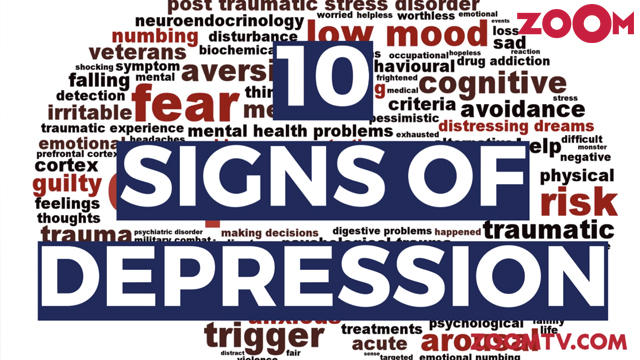
That’s what depression looks like?
Depression does not affect everyone the same. While many people will have classic symptoms, others may not recognize their consistent behaviors may be linked to depression. Let’s examine the less obvious signs of depression.
- Irritability-While many people who are depressed report feelings of overwhelming sadness and hopelessness, others may experience increased irritability. They may yell at their spouse or children more than usual or become easily frustrated in the grocery store or while driving.
- Physical complaints-Frequent headaches or pain that cannot be explained, may actually be caused by depression. Headaches may be caused by tension due to stress, or chemical and hormonal changes in the brain.1The most reported physical complaints associated with depression are low energy, trouble sleeping, nausea, gas and indigestion, headache, joint pain, racing heart, and aches and pains all over the body.2
- Guilt-Not being able to forgive oneself or move past a perceived wrongdoing may be linked to depression. The depressed person may blame oneself excessively and inappropriately. Many people with depression have distorted thinking patterns, which can lead to feelings of guilt.
- Risky behaviors-Some people who are depressed may engage in risky behaviors that provide opportunity for immediate reinforcement.3 They may be impulsive or show maladaptive behaviors. Examples of risky behaviors are having unprotected sex, multiple sexual partners, excessively drinking alcohol, using drugs, or frequently gambling.
- Sleep problems-People with depression may have difficulty sleeping or may sleep too much. If someone is having persistent problems with sleep, it may be a sign of depression.
- Fatigue-Always feeling tired or having low energy, without a medical reason, may be linked to depression.
- Poor concentration-Are you having trouble remembering things, or feel like you are in a fog? Are you less productive or easily distracted? Maybe your reaction time has slowed down or you have trouble making decisions. Any of these can point to depression.
- Decreased sexual desire-When there is a noticeable change in sex drive that is different from one’s typical pattern, there may be reason to take notice. Decreased sex drive has been linked to depression.
- Changes in eating patterns-The person with depression may not have an appetite or binge eat when depressed, either way it is an indicator that something is wrong.
- Self-medicating-Some people who are depressed cope by drinking, using drugs, or smoking. They want to feel better, even if temporarily. They may not recognize they are depressed and fall into a cycle of addiction.
If you recognize any of these problems in your day-to-day life and they are interfering with functioning, reach out to a psychiatrist and therapist. Depression is more common than you may think. More than 300 million people across the world have depression. Depression can be treated, but first you must recognize the signs. Hopefully, this list will help you or a loved one. For anyone who is reading this and is having thoughts of suicide please go to your local emergency department or call the National Suicide Prevention Lifeline at 1-800-273-8255. You can also text “HOME” to 741741 to text with the Crisis Text Line.
1 Sharma, N., Gupta, A., Puri, P., & Mohan, M. (2016). Anxiety and depression in chronic headache patients: Major concern for community mental health. Indian Journal of Health & Wellbeing, 7(1), 45-47.
2 Grover, S., Avasthi, A., Kalita, K., Dalal, P. K., Rao, G. P., Chadda, R. K., & … Deka, K. (2013). IPS multicentric study: Functional somatic symptoms in depression. Indian Journal of Psychiatry, 55(1), 31-40. doi:10.4103/0019-5545.105505
3 Tull, M., & Gratz, K. (2013). Major depression and risky sexual behavior among substance dependent patients: The moderating roles of distress tolerance and gender. Cognitive Therapy & Research, 37(3), 483-497. doi:10.1007/s10608-012-9490-3

